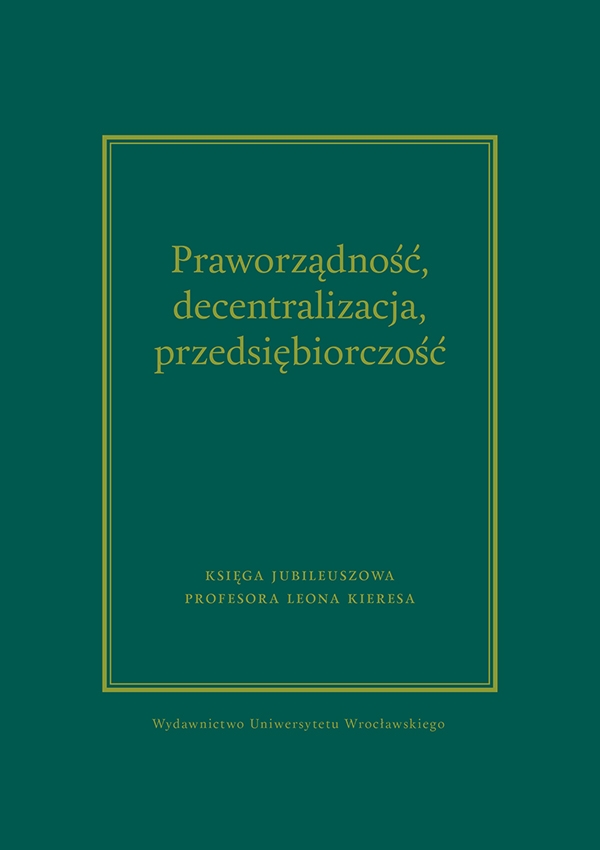

PRAWORZĄDNOŚĆ

LEGAL FORMS OF UNDERTAKING AND CONDUCTING MEDICAL SERVICES ACTIVITY AS AN ELEMENT OF HEALTH CARE SYSTEM IN POLAND. CERTAIN ASPECTS
The health care system in Poland is characterized by big diversity on side of patients, services delivered by medical services organizations, and medical services organizations entities. The meaning of health care in terms of modern state is quite blatant. The appropriate legal regulation and the structural organization constitutes one of biggest challenges which now-a-days states face. A constitutional provision that guarantees right to health care and to access to health services “right to medical care”, “right to health”. In Poland such right is guaranteed by art. 68 secs. 1–5 of the Polish Constitution. There are many legal forms entities of medical services organizations. Those organizations may be divided into entrepreneurs and non-entrepreneurs. Such division is provided by the Polish act on medical services activity of April 15, 2011. Among entrepreneurs there are all entities which are undertakings according to Polish law, and research institutions, foundations, associations, organizational units of associations with legal entity, and units which function under laws regulating relations of the State with diff erent churches. There are additionally private medical practices conducted by medicine doctors and nurses. Among non-entrepreneurs there are so-called public independent health care units, budget units and military units. Moreover, one of the most important issues in the area of health care is a phenomenon of confl ict of interests. It relates to medicine doctors who are employed at the same time in public medical services organizations and in the private sector of health care, or the owners of the private sector medical services organizations, including private medical practice. It seems that such a confl ict of interests should be stopped by non-compete clauses provided in contacts concluded with public medical services organizations. Another possibility is to provide a general prohibition of combining both employment in public medical services organizations with private activities in this sector, including any form of capital involvement in this area.